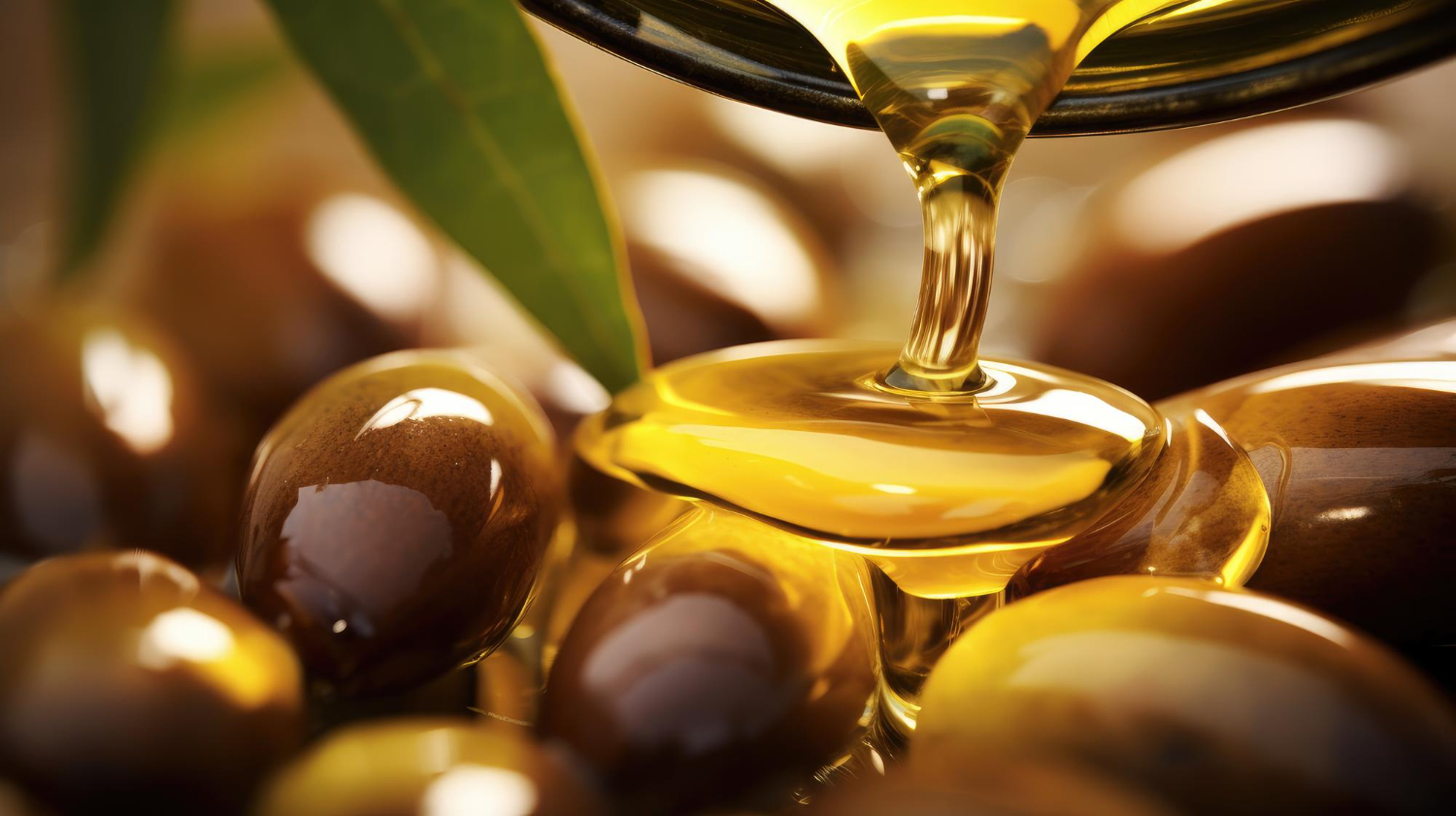Jojoba oil is gaining popularity as a versatile natural oil. It comes from the seeds of the jojoba plant, which thrives in desert climates. This oil offers a range of benefits for skin and hair, making it a valuable addition to any beauty routine.
Many people are discovering that jojoba oil can effectively moisturize, heal, and protect the skin. Its unique composition closely resembles the natural oils produced by the skin, making it an excellent choice for various skin types. Users often find relief from issues like acne, dryness, and even signs of aging when incorporating this oil into their regimen.
In addition to its skincare applications, jojoba oil has become a staple in the cosmetics industry due to its gentle and effective properties. As more individuals seek natural alternatives for beauty and wellness, understanding its uses and benefits can significantly enhance their personal care journey.
Key Takeaways
- Jojoba oil is extracted from the seeds of the jojoba plant and is known for its moisturizing properties.
- It closely mimics skin’s natural oils, making it suitable for a variety of skin types.
- Jojoba oil is widely used in cosmetic products for its gentle and healing benefits.
Origins and Production of Jojoba Oil
Jojoba oil comes from the seeds of the Simmondsia chinensis plant. This shrub is native to the arid regions of southern Arizona, southern California, and northwestern Mexico.
The seeds make up about 50% of their weight in oil. This oil functions like a liquid wax and closely resembles the sebum produced by human skin.
Cultivation:
- Jojoba has been cultivated worldwide due to its valuable properties.
- It thrives in dry climates where few other crops can grow.
The seeds are harvested and then processed to extract the oil. This extraction is usually done through cold pressing, which helps preserve its beneficial properties.
Uses in Industry:
Jojoba oil gained popularity in the cosmetics and skincare industries during the 20th century. It is commonly found in various products such as lotions, hair conditioners, and beard oils.
Jojoba is known for its moisturizing effects and ability to regulate oil production. Its versatility makes it a favorable ingredient in personal care items, sought after for both skin and hair health.
Its safe and non-toxic nature also contributes to its widespread use, making it compatible with most skin types.
Chemical Composition of Jojoba Oil
Jojoba oil is unique among plant oils due to its composition. It is made up of approximately 98% waxes, primarily wax esters, with only a small amount of free fatty acids, alcohols, and hydrocarbons.
The main components of jojoba oil include:
- Long-chain fatty acids and fatty alcohols, containing 36 to 46 carbon atoms.
- Gadoleic acid, which makes up 61-71% of the oil.
These components contribute to jojoba oil’s stability and long shelf-life.
The presence of sterols and vitamins also enhances its properties. Jojoba oil closely resembles human sebum, which makes it an excellent moisturizer.
In addition, its unique wax structure allows it to serve multiple functions. These include use in cosmetics, pharmaceuticals, and as a lubricant or surfactant.
This composition makes jojoba oil valued in various industries, demonstrating its versatility and effectiveness as a natural product.
Benefits and Uses of Jojoba Oil
Jojoba oil is well-known for its versatility and effectiveness in both skin and hair care. Its unique properties make it beneficial for moisturizing, healing, and nourishing.
Skin Care Applications
Jojoba oil is an excellent moisturizer. Its structure is similar to human sebum, allowing it to absorb easily into the skin. This helps maintain hydration without clogging pores.
- Acne Treatment: Jojoba oil can help reduce acne. It balances oil production and has antibacterial properties that can fight acne-causing bacteria.
- Anti-Aging: Rich in antioxidants, it reduces the appearance of wrinkles and fine lines. It helps improve skin elasticity and promotes a healthy glow.
- Soothing Skin Conditions: Jojoba oil is effective against conditions like psoriasis and eczema. Its anti-inflammatory properties help calm irritated skin.
Hair Care Benefits
Jojoba oil is also beneficial for hair health. It provides deep hydration and promotes shine.
- Moisture Retention: It forms a protective barrier that locks in moisture. This is crucial for dry or damaged hair.
- Scalp Health: It can treat dandruff and dry scalp by moisturizing and soothing irritation.
- Strengthening Hair: Regular use can strengthen hair strands, reducing breakage and split ends.
Medicinal Properties
Beyond cosmetic uses, jojoba oil has several medicinal properties. It can support skin health and act as part of natural remedies.
- Antimicrobial Effects: Jojoba oil has antimicrobial properties. It can help prevent infections in small cuts and abrasions.
- Healing Properties: It supports wound healing by promoting cell regeneration. This can be useful for minor burns or cuts.
- Rich Nutrients: It contains vitamins E and B, as well as fatty acids. These nutrients contribute to overall skin and hair health.
Jojoba oil is a valuable asset in personal care routines for its many benefits across skin, hair, and medicinal applications.
Methods of Extracting Jojoba Oil
Jojoba oil is extracted from the seeds of the jojoba plant through several methods. Each method has its advantages and potential drawbacks.
1. Cold-Pressing:
This method involves mechanically pressing the seeds without heat. It preserves the oil’s qualities and produces high-quality jojoba oil. This technique is slower and yields less oil compared to other methods.
2. Solvent Extraction:
In this method, solvents are used to dissolve the oil from the seeds. It is faster and can extract more oil. However, there may be concerns about leftover solvent residues in the final product.
3. Supercritical CO₂ Extraction:
This process uses carbon dioxide under high pressure to extract oil. It is efficient and leaves no harmful residues. This method is often more expensive due to the specialized equipment required.
4. Filtration-Extraction Process:
This technique combines cooking and mechanical crushing of the seeds to enhance oil yield. It allows for better control over temperature and moisture during extraction.
Comparison Table:
| Method | Yield | Quality | Residue Concerns |
|---|---|---|---|
| Cold-Pressing | Moderate | High | Low |
| Solvent Extraction | High | Moderate | Possible |
| Supercritical CO₂ Extraction | Very High | High | None |
| Filtration-Extraction | Moderate | Variable | Low |
Each method plays a role in how jojoba oil is produced, affecting its quality and safety.
Jojoba Oil in the Cosmetic Industry
Jojoba oil is a popular ingredient in the cosmetic industry due to its unique properties. It is technically a wax ester, which closely resembles the natural oils found in human skin.
Key Benefits of Jojoba Oil:
- Moisture Retention: Jojoba oil helps lock in moisture without making the skin feel greasy. This makes it ideal for lotions and creams.
- Non-Comedogenic: It does not clog pores, which is beneficial for people with acne-prone skin.
- Heat Stability: Jojoba oil can withstand high temperatures without losing its beneficial properties. This quality allows it to be used in various formulations, including sunscreens.
Many cosmetic products incorporate jojoba oil, such as:
- Moisturizers
- Sunscreens
- Cleansers
- Makeup Removers
Its anti-inflammatory properties also aid in soothing the skin. This makes jojoba oil suitable for sensitive skin types.
Furthermore, its high oxidative stability ensures that it has a longer shelf life compared to other oils. Many brands highlight jojoba oil as a key ingredient, promoting its effectiveness and safety in skin care.
Jojoba oil continues to be a valued component in cosmetic formulations, providing both functional and aesthetic benefits.
Considerations for Purchasing and Storing Jojoba Oil
When purchasing jojoba oil, quality is crucial. Buyers should aim to get pure, cold-pressed, and organic jojoba oil from trusted suppliers. This helps ensure better shelf life and effectiveness.
Storage is essential for maintaining quality. Here are key tips for storing jojoba oil:
- Avoid Heat and Light: Store in a cool, dark place. High temperatures and sunlight can speed up the oil’s degradation.
- Use Airtight Containers: Oxygen can cause oxidation. Keeping jojoba oil in a tightly sealed container minimizes exposure.
- Prevent Moisture: Do not store jojoba oil in damp areas like a bathroom. Moisture can lead to contamination.
- Choose Dark Glass Bottles: These protect the oil from light exposure, further extending its shelf life.
It’s important to note that jojoba oil has an impressive shelf life of up to 5 years, with the best quality usually observed within the first 3 years.
Finally, it is not wise to reuse containers for jojoba oil. Each time oil is transferred, there is a risk of contamination. Following these guidelines will help ensure the jojoba oil remains effective over time.



